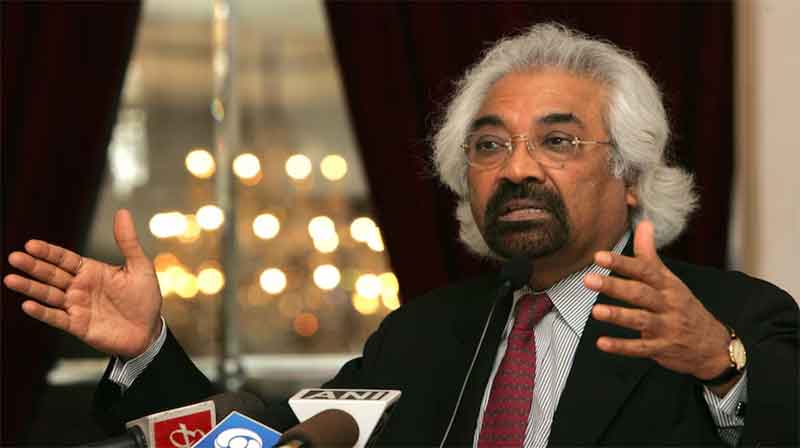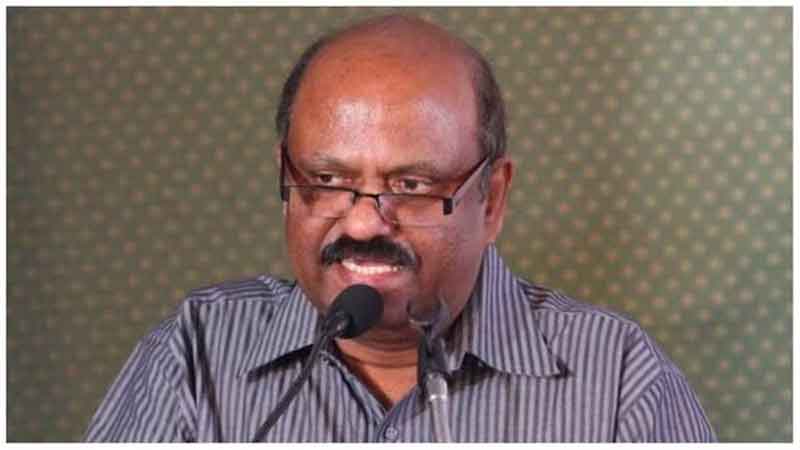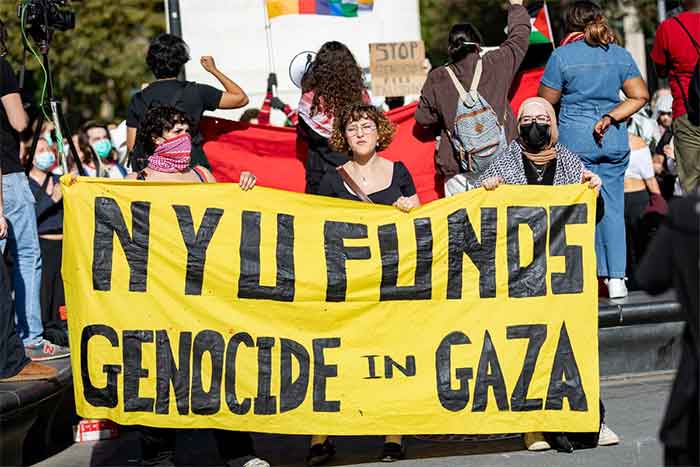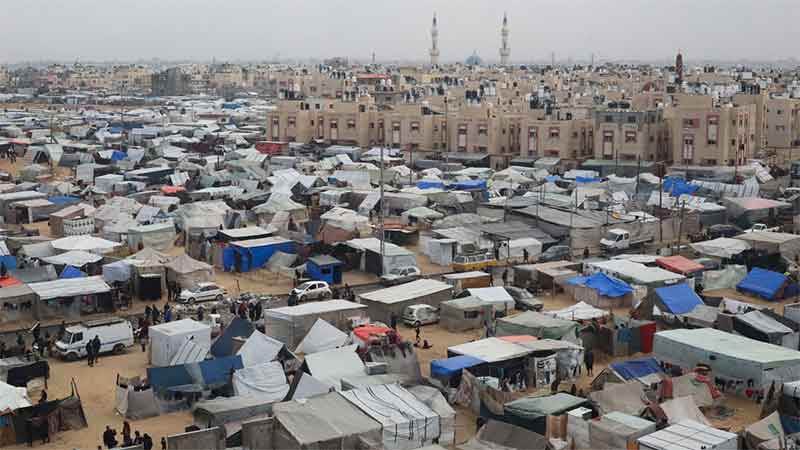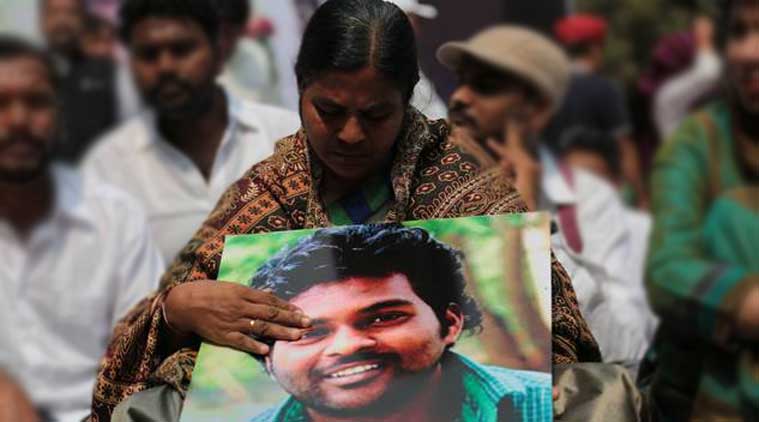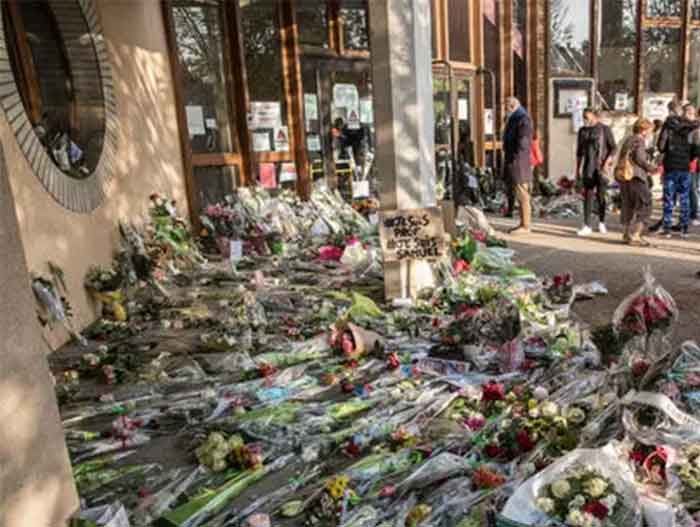
Terrorism has struck France again in the wake of the ongoing cartoons’ controversy. In a terrorist attack some years ago on the headquarters of Charlie Hebdo magazine following the publication of the controversial cartoons, several people were killed. And now, in a recent terrorist attack, yet more people have lost their lives.
There can be no justification for committing acts of terrorism in the name of supposedly defending religion or God from insult. Those who try to counter blasphemy with blood have a primitive attitude that does not embody the etiquette of the modern world. Human beings will not be able to live in peace if they support extremists who do not embody the values of the civilized democratic world and who play on religious sentiments in order to whip up hate and violence. In fact, such extremists are working against the very religion they claim to believe in and are giving it a very bad image.
What do those who pretend to be ‘God’s goons’ think? Do they think that the glory of the prophets can be tarnished by opposition or criticism? How weak it would be if God, His words and prophets were to be shattered by human reproach! Can anyone with a modicum of commonsense think that a merciful God and a glorified prophet can be intolerant towards their critics and accusers just as ordinary people often are?
When the Prophet Muhammad approached the Arabs of his time with the verses of the Qur’an, he was met with sharp criticism. The Qur’an itself makes it clear that the Arabs of Makkah objected to and criticized it. They claimed that the verses were myths of the ancients. The Qur’an replied, “Or do they say, “He made it up”? Rather, they do not believe.So let them produce a discourse like it, if they are truthful..”(52:33,34). Here we find an appropriate example of how to deal with criticism. Once, while the Prophet was praying, an old lady came and she placed a camel’s intestines around his neck. Still, he did not retaliate with violence. *
Recent events show that the majority of those who are involved in religious extremism are young people. They are superficial believers who have a very superficial, grossly inadequate and deeply faulty understanding of the Qur’an and the life of the Prophet. The speeches of highly conservative preachers are often the only source of their religious knowledge. They do not know how to read religious texts in the right manner or the importance of interpretation in understanding the texts. To them, religion is just extreme emotions.
The task of interpreting and understanding the scriptures in terms of the occasions of their revelation and their historical context has not been sufficiently developed among Muslim scholars. Understanding religious texts as a source of codes, rules and laws, instead of treating them as a source of values, leads to dangerous thinking. Medieval literalist interpretations of religious beliefs and practices are often thoroughly insufficient to enable believers to negotiate with life in the modern world. What is required are understandings that go beyond dogmatic externalism and dry literalism and that truly uphold the essence and spirit of religious teachings.
Interpretations that seek to take modern-day man back to antiquity are still a dominant current in Islamic theology. This is a blind and irrational interpretational method. Religious fundamentalists and those who view religion as a mere political ideology follow such interpretations. These interpretations become the inspiration for religious extremists and terrorists. There is now an urgent need for Muslim scholars to interpret religious teachings with an emphasis on modern political values such as democracy, respect for religious and ideological pluralism, civil liberties, individual liberty and freedom of expression.
It is a positive thing that many Muslim countries have come forward to denounce religious terrorism. Referring to the recent events in France, the Saudi Foreign Ministry stated that it rejects extremist activities that are not in line with all religions, creeds and commonsense. Likewise, the UAE Ministry of Foreign Affairs and International Cooperation has strongly condemned such actions. Countries such as Kuwait, Qatar, Oman and Bahrain have strongly condemned the incident in France.
Muslim countries and Muslim communities must come forward to plan and implement programmes to prevent the recurrence of such attacks, not just through statements but also through practical actions. It is important to lift the religious community out of conservative attitudes. It is also necessary to reclaim their many youngsters who have lost their sense of reality through emotionalism.
Mujeeb Rahman Kinalur is a writer and journalist based in Calicut, Kerala.
He may be reached at [email protected]
SIGN UP FOR COUNTERCURRENTS DAILY NEWSLETTER


